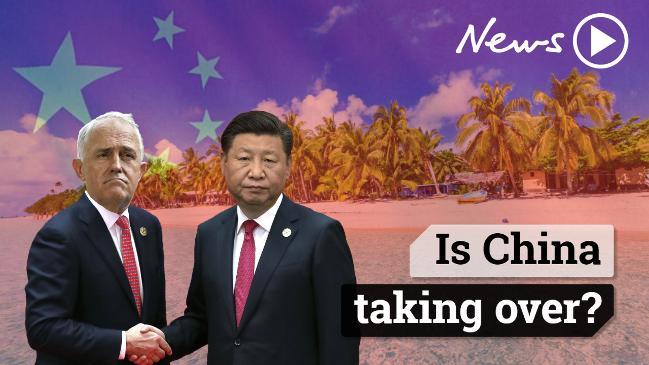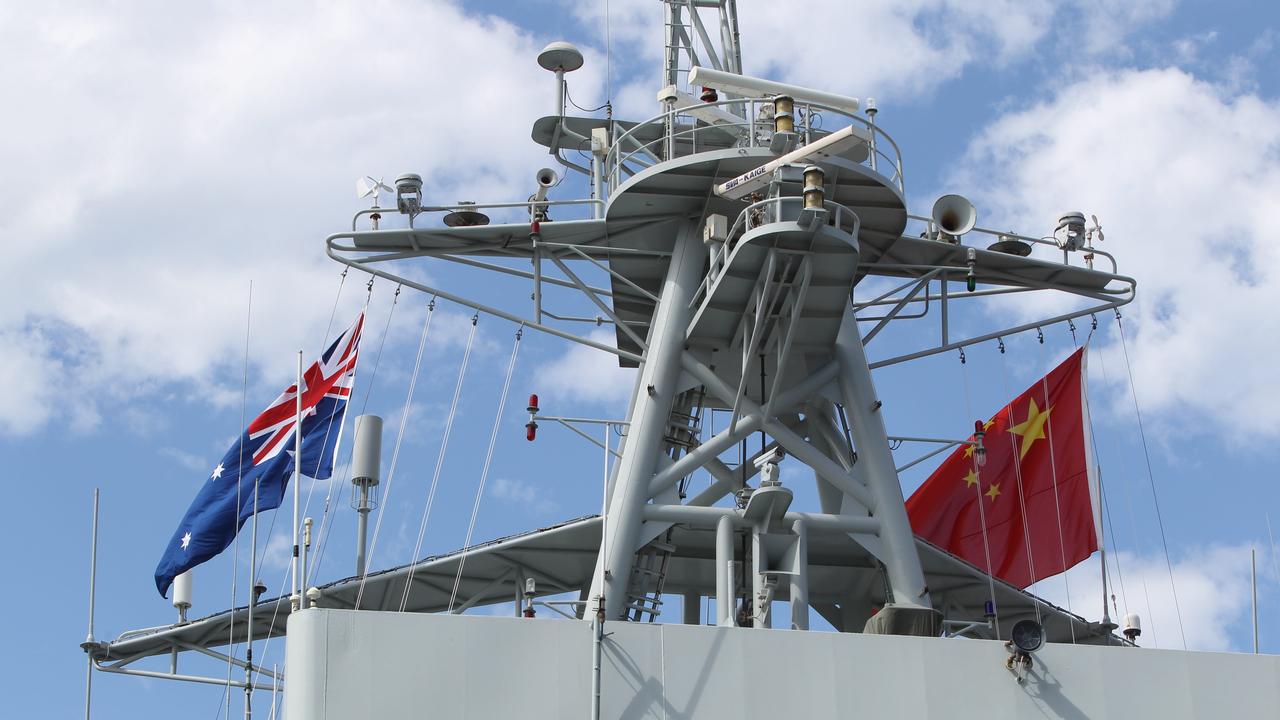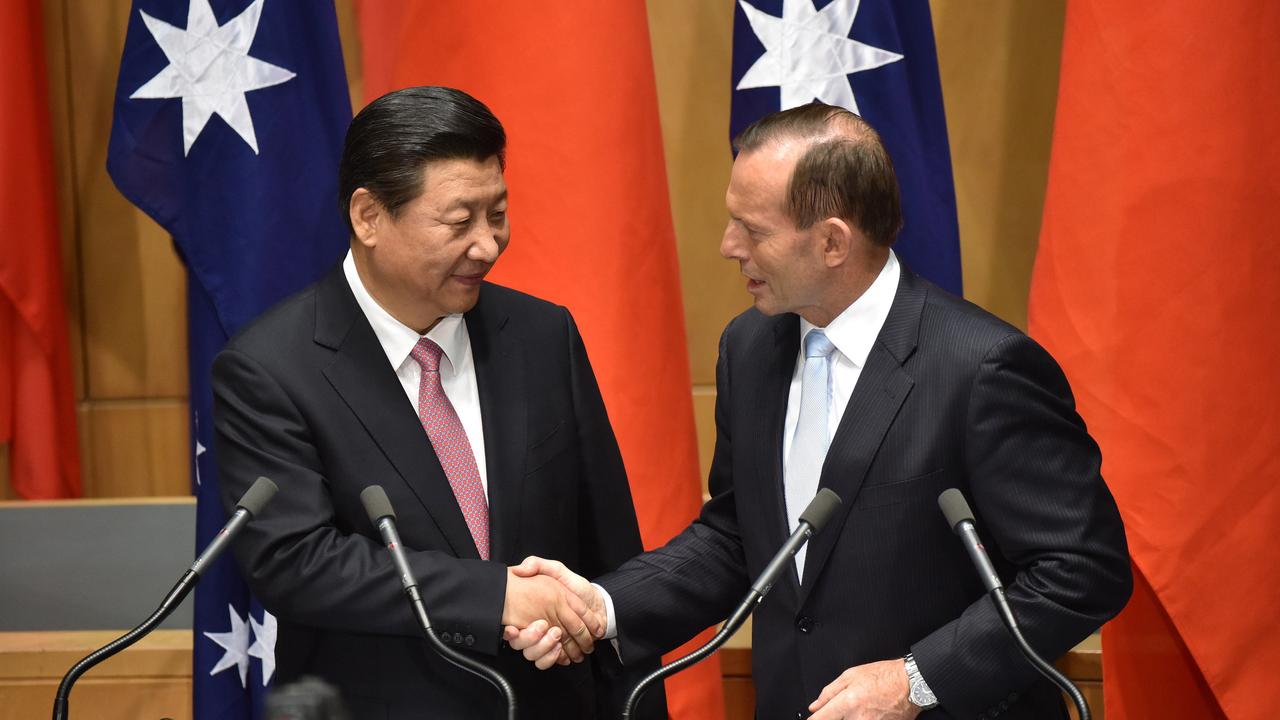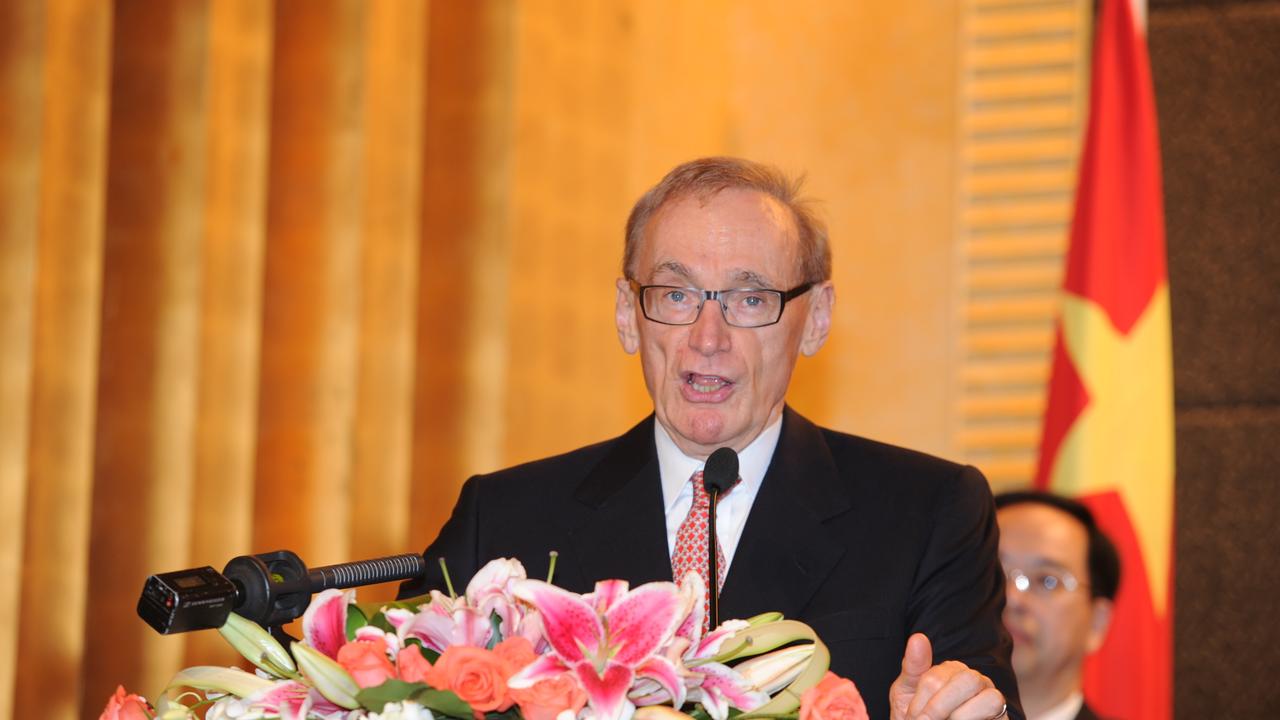Australia’s approach to both China and the United States needs to change, says Bob Carr
AUSTRALIA could soon be caught in a major global battle between two superpowers — and our current approach is all wrong.

AUSTRALIA is in need of an attitude makeover.
Amid the escalating threat of a large-scale trade war between the United States and China, former foreign minister Bob Carr has warned that Australia’s approach to both major powers needs to change.
In his new memoir, Run For Your Life, Mr Carr warns that we need to consider the “big disturbing idea” that if conflict was to arise between the US and China, following the US into war by default “might be a danger to Australian security, not a guarantor of it”.
Speaking with news.com.au, Mr Carr warned us not to underestimate the gravity of a potential flare-up between China and the US, saying it may lead to a “shooting war”.
“The greatest threat Australia faces is the prospect that a trade war between America and China could become a Cold War,” he said. “And that Cold War could flare into a shooting war as a result of a misjudgment.”
For several months, a potentially devastating trade war has been bubbling between the two powers, with some arguing the impacts could be worse than the global financial crisis of 2009.
But Mr Carr believes Australia’s devotion to a declining US, combined with our hostile stance towards China in the past 18 months, could ultimately work against us.
He argues a “China panic campaign” has dominated the public conversation at the expense of a healthy diplomatic relationship.
At the same time, he said he “questions the wisdom of throwing everything behind the bet that American power will continue to have force in the world”.

CHINA ‘TO OVERTAKE’ US AS WORLD’S LEADING POWER
According to the Lowy Institute’s Asia Power Index, which ranks 25 countries and territories by their power, China is set to surpass the US by 2030, almost doubling the latter’s economy.
The rising superpower has already exceeded the US in terms of diplomatic influence, economic relationships and geoeconomic security.
At the same time, the relationship between Australia and China has been soured by a back-and-forth exchange of vague threats, reports of a “diplomatic deep freeze”, and ongoing accusations of China’s attempts to influence and interfere in Australian politics — which Mr Carr described as a “panic campaign sailing way beyond any evidentiary base”.
He attributed people’s fear of the rising superpower to three points.
“The ultimate panic is China’s unmistakeable economic rise,” he said. “There was no hard or soft landing. The realisation of this has shocked a lot of people.”
He also attributed people’s concerns to Beijing’s assertiveness in the South China Sea, having recently noted our options beyond “vigorous diplomatic assertion” are limited there.
“I think what’s happening to America is the third ingredient. The most passionately pro-American people in our think tank and our security establishments are just shocked by the sudden possibility of American political deadlock and decline. This has encouraged a panicked response to China’s rise.”
Last month, Foreign Minister Julie Bishop hit out at Mr Carr, accusing him of acting against the national interest over claims he used Labor MPs to ask questions about the author of a top-secret report on Chinese interference.
“I find it extraordinary that senators would have their questions drafted by a former Labor member who has clearly a different view of the national interest than I would think the opposition here in Canberra does,” Ms Bishop told Fairfax Media.
“It is a matter for Bob Carr to answer what contractual or financial arrangements he has with organisations.”
But Mr Carr rejected any claims he’s advocating for Australia to embrace China any more than it did under the former Abbott government.
“(The relationship) can easily be improved. They’ve allowed a couple of speeches to be written by members of the anti-China Taliban — fundamentalists and zealots,” he told news.com.au. “Those people have been given a bit of a free run for 18 months. It’s now time to put the professional diplomats back in charge.”

A recent Lowy Institute poll also found that, while the majority of Australians remain concerned by Chinese investment, the overwhelming majority also see China as more of an economic partner (82 per cent) than a military threat (12 per cent).
So what’s the solution?
“Our position should be a fully engaged diplomacy with China,” Mr Carr said. “We’re the only American ally that can’t get a meeting with Chinese leadership.”
Last month, Chinese leader Xi Jinping, Japanese Prime Minister Shinzo Abe and South Korean President Moon Jae-in met as a summit in Tokyo.
“Why can’t we be part of that sort of dialogue, while strongly maintaining our position on the South China Sea? If I was Foreign Minister today, the language on the South China Sea would be the same as Julie Bishop’s, because that’s the Australian position.
“A fully-engaged diplomacy which gives the opportunity to influence Chinese behaviour … you can’t do it unless you’re engaged with them. At the present time, we’re handicapped by a more adversarial stance on China than any other US ally.”

Some defence experts news.com.au has spoken to have argued that Australia’s position will be to toe the line between its two relationships for as long as possible, but under pressure, we’d ultimately take America’s side.
But Mr Carr says the notion that Australia shouldn't have to “choose” between the US and China, he suggests, is not a pipe dream, but a very real possibility if we play our cards right.
“We should continue saying to China what we’ve done since Whitlam, letting the Chinese know we are part of the US alliance system and the alliance is not directed at them,” he notes. “But we should also let the Americans know that our alliance commitment with them does not preclude us from a positive and pragmatic policy towards China.
“It’s easy to be an ally of the US and a serious partner of China as it continues to make its transition, the most vast and most concentrated in human history, to being ultimately a rich country and vastly more powerful in the world.
“It just takes diplomacy, fuelled by confidence.”
Run For Your Life will be published by Melbourne University Publishing on July 2.



